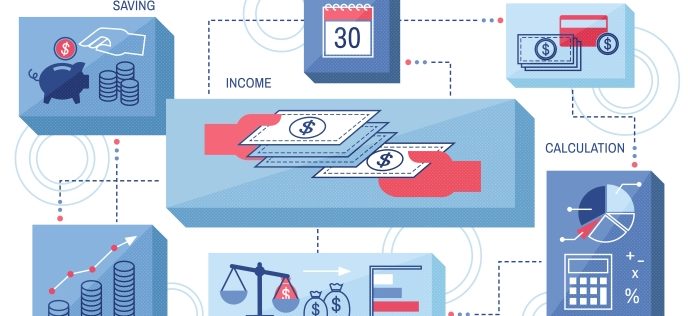The Executive Decree No. 876 establishes reforms to the Regulations of the Internal Tax Regime Law (RALRTI) in connection with the implementation of the Organic Law for Economic Development (LOFEM) as well as reforms to the General Regulations of the Organic Law for the Development of Aquaculture and Fishing (RGLODAP). The following is a summary of the most relevant points of this reform:
- Deductible General Expenses
Regarding losses arising from the transfer of occasional real estate:
Previously, Article 28 d) established that losses generated by the occasional transfer of real estate were not deductible. However, the reform has introduced an important exception. Now, such losses will not be deductible only in the case of occasional real estate transfer operations that, if they had generated profits, would have been non-taxable (e.g., sale of a house by an individual).
Regarding losses arising from the transfer of Financial Assets:
Another significant change refers to the loss generated in the transfer of ownership of financial assets corresponding to commercial credits or receivables traded with related parties. Such loss will not be deductible for individuals and companies other than financial entities. This aims at limiting the non-deductibility of losses in transactions with related parties.
In other cases of transfer of financial assets, the reform introduces a restriction on the discount rate allowed. This discount rate may not exceed three (3) times the reference lending rate of the Central Bank of Ecuador. Any excess over this rate will not be deductible.
Examples
In order to clarify these changes, let us consider an example. Suppose a company transfers real estate and experiences a loss of US$10,000. Under the new regulations, such loss will only be non-deductible if the transfer would have been non-taxable if it generated a profit.
In the case of the transfer of financial assets, if a company sells trade receivables to a related party and experiences a loss of US$20,000, such loss will be non-deductible.
In addition, if a financial entity transfers financial assets at a discount rate that exceeds three times the reference lending rate of the Central Bank of Ecuador (BCE), the excess will be non-deductible.
Regarding Promotion, Advertising and Sponsorship:
It is established that, in order to apply additional deductions of 150% in the case of scholarships or aid granted directly or through educational institutions in favor of low-income students in dual and third or fourth level educational institutions, a certification issued by the governing entity in the matter, including detailed information on the beneficiary of the contribution and the contributor, is required. In addition, it is stated that the contribution must be made directly to persons or institutions domiciled in Ecuador, without intermediaries. A process is established to obtain such certification, which involved a favorable opinion from the governing body of public finances.
The reform has introduced changes in the process of obtaining the certification to apply such additional deductions. Now, in addition to the data of the beneficiary and the contributor, the contribution can be made by delivering the resources directly to the person or company, public or private, that executes the project. This would allow greater flexibility in the way contributions are made.
The process of obtaining certification and the favorable opinion of the public finance governing body remain unchanged.
Impact of the Reform
The reform simplifies the process of applying additional deductions by allowing contributions to be made directly to the entity executing the project, whether it is an individual or a public or private company. This may facilitate collaboration and sponsorship in this type of projects.
- Personal Expenses
For the Income Tax (IR) cut caused by the reform has introduced several changes in the article which are the following:
- The IR cut is applied before imputing tax credits in accordance with the Law.
- The calculation of the IR cut is now based on the value of the Basic Food Basket in force in January of the respective fiscal year.
- Personal expenses must be incurred in the Ecuadorian territory and still include housing, health, food, clothing, tourism and education, including art and culture concepts.
- In the category of housing expenses, deductible expenses such as rent, condominium fees, interest on mortgage loans, property tax and basic services are maintained. These expenses are considered only for properties used as the habitual residence.
- In the category of health expenses, deductible expenses include fees of physicians, clinical psychologists and other health professionals, health services in clinics, hospitals, clinical laboratories, pharmacies, medicines, medical supplies, eyeglasses, prostheses, prepaid medicine and health insurance premiums. Also considered are the non-reimbursed premiums of the private insurance settlement and expenses for catastrophic, rare or orphan diseases.
- Food purchases are maintained as food expenses.
- Education expenses are maintained including arts and culture expenses focused on tuition and pension of the educational system, updating and professional training seminars approved by official authorities, higher education including dependents over 18 years of age who do not receive income and who are economically dependent on the taxpayer, school supplies and textbooks, books, special education services for the disabled person duly endorsed, child care or development centers, uniforms, and arts and culture expenses both in formal and non-formal instruction as well as in the consumption of artistic goods and services including handicrafts acquired from qualified artisans.
- Any type of clothing is maintained as clothing expenses.
- Tourism expenses related to authorized establishments with a single annual operating license are maintained.
- The sales receipts that support the expenses may be in the name of the taxpayer or of his or her duly registered family members.
- For the registration of parents as dependents, the express consent of the family member is required, and it is mentioned that parents who receive retirement pensions, but are dependents of the taxpayer and do not receive taxable income, may be considered as dependents. Child support payments are also considered personal expenses.
- Pet-related expenses related to health, food, education and clothing are included.
- It is established that children without disabilities can be considered as family expenses up to 21 years of age, provided that they comply with the other conditions set forth in the Law.
- It is allowed to consider a family charge for the whole fiscal year once the expenses are incurred, except if he/she maintains taxable income during the fiscal year.
- It is established that family burdens are dependent on the taxpayer when they cover practically the totality of personal expenses.
The reform has made adjustments in the way in which family charges are recorded and considered in personal expenses. The categories of personal expenses have also been maintained, as well as the possibility of choosing without restriction the types of expenses for the IR cut.
- Reinvestment of Profits in Specific Projects or Programs
Some changes in the article related to the reduction from 8% to 10% of the income tax rate on the amount of the reinvestment of profits made in sports, cultural, responsible scientific research or technological development projects or programs are as follows:
- The conditions to access the benefit are modified: Taxpayers must reinvest their profits in programs and/or projects of their own or of third parties executed in the following fiscal year to that in which the profits to be reinvested were obtained. Therefore, the tax benefit is applicable in the tax year in which the reinvestment is made.
- The need for prior qualification by the governing bodies of sports, culture, higher education, science and technology to access the benefit is maintained. The programs and/or projects must be qualified as priority in order to obtain the 10% reduction.
- The reinvestment of profits is destined to the purchase of goods and services used in the execution of the qualified programs and/or projects.
- It is specified that in the case of programs and/or projects executed by third parties, the funds must be used to acquire capital rights in companies that execute the qualified projects or programs.
- Withholding Agents and Special Taxpayers
The reform adds as IR withholding agents to taxpayers residing in Ecuador who are sports betting operators.
In addition, the amended Article 254 states that, in the case of special taxpayers, income tax, VAT, withholdings and ICE returns and payments must be made until the 11th of the respective month (previously it was until the 9th) and that in the event that such day is a mandatory day off, the return and payment will be made the following business day (previously it was the previous business day). Considering that this regulation is in force as from September 2023, its applicability begins as from October 1, 2023.
- Withholdings
The reform has adjusted the conditions and deadlines for the withholding at source on employment income. Changes have been introduced in the way of calculating the monthly rate to be withheld and specific deadlines have been established for the submission of personal expense projections by taxpayers. Some of the changes regarding the form of withholding at source on employment income are as follows:
- All the employee's remunerations are added up, except for the thirteenth and fourteenth remunerations, projected for the whole fiscal year.
- The amounts to be paid for the individual contribution to the Social Security and for senior citizen or disabled person are deducted. In the case of members of the Public Force, only the personal contributions to the Military or Police Funds for retirement or severance purposes are deducted.
- As a result, the annual taxable base is obtained, to which the income tax rate will be applied to obtain the projected tax to be incurred.
- The IR cut obtained for personal expenses is deducted from the result obtained.
- The division to determine the monthly income tax withholding rate is adjusted to 11 instead of 12.
- Withholding starts from the payments made to employees in February of each year. No withholding is made in January.
- The calculation of the personal expense allowance is based on the value of the Basic Food Basket as of January of the corresponding fiscal year, with subsequent adjustments if necessary.
- Taxpayers submit to their employer a projection of personal expenses in the month of February of each year, and such document must include the concept and the estimated or projected amount for the entire fiscal year, the number of family charges for the calculation of tax cut and, if applicable, the differentiated calculation by diseases.
- RIMPE Regime
It is established that the RIMPE regime cannot be applied if a taxpayer carries out any activity excluded from RIMPE. Previously, RIMPE did not apply if the activity was carried out exclusively and solely; whereas now such exclusivity is not relevant.
Regarding the restarting of activities
The reform has made changes in the article related to the restart of activities for individuals subject to the RIMPE Regime.
Now, if a taxpayer suspends its RUC and then restarts its economic activities within the same fiscal year, it will remain in the RIMPE Regime. However, if the restart of activities takes place in a fiscal year different from the one in which the RUC was suspended, the taxpayer will not be able to return to the RIMPE Regime and must belong to the corresponding regime according to its economic activity from the moment of the reactivation.
Regarding taxpayer registration
The reform has established a more dynamic and flexible process for the registration and update of taxpayers in the RIMPE Regime, with the possibility of category changes and the obligation to update the RUC in case of exceeding the established income limits, which are as follows:
- SRI will carry out the registration of taxpayers that are part of the RIMPE at the time of registration in the RUC or by updating it. Such update may be ex officio by the Tax Administration or at the taxpayer's request.
- SRI may include, recategorize or exclude taxpayers from the RIMPE Regime at any time during the fiscal year. Inclusions are only for new taxpayers registered in the RUC, and recategorizations refer to the change from popular business to entrepreneur and vice versa. In all cases, the taxpayer will be notified of the ex officio update of its RUC.
- The formal duties corresponding to the regime detailed in the updated RUC certificate will be enforceable from the month following the update.
- If a popular business taxpayer obtains income over US$ 20,000 in the course of the current fiscal year, it must update its RUC in order to file under the corresponding regime and levy 12% VAT on its sales. The Tax Administration may also do so ex officio based on the information in its databases.
Regarding formal duties
The article on formal duties for tax purposes has undergone changes after the reform, specifically in relation to accounting for taxpayers in the RIMPE Regime. The changes are summarized below:
Before the reform
Formal duties included the issuance of sales vouchers, request for vouchers for purchases, registration of income and expenses, filing of returns, filing of information annexes and other formal duties under the Tax Code.
After the reform
- Formal duties continue to include the issuance of sales vouchers and other documents, request of vouchers for purchases, filing of returns, filing of information annexes and other formal duties according to the Tax Code.
- A differentiation is introduced in the formal duties related to the recording of income and expenses:
– Taxpayers considered as Popular Businesses are required to keep a record of income and expenses for tax purposes.
– Taxpayers considered as Entrepreneurs will be obliged to keep accounting records when they comply with the requirements set forth in the regulations in force; otherwise, they must keep a record of income and expenses.
Regarding sales receipts
The reform has established that only popular businesses in the RIMPE Regime may issue sales notes or invoices to their purchasers of goods or services. The other taxpayers must issue the appropriate vouchers and documents according to the current regulations.
It is established that when the taxpayer is no longer RIMPE, it will not be able to issue sales receipts that have not been used.
Regarding support of operations
- Taxpayers incorporated in the RIMPE Regime must continue to request sales receipts to support their operations and keep the documents that support their transactions for a period of no less than seven years, as established in the Tax Code.
- Considering that in the case of popular businesses VAT does not apply, the clause that referred to the recognition of VAT tax credit by customers has been eliminated.
The reform has simplified the article related to the support of operations in the RIMPE Regime, eliminating the detailed provisions on VAT and tax credits in the RIMPE Regime and focusing on the request for sales receipts and the conservation of documents as part of the formal duties of taxpayers in this regime.
Regarding Taxable Income
The reform eliminates the concept of generation and reversal of deferred taxes when determining the taxable base, which clarifies this position that was not clear in previous years.
Dividends, sale of capital rights and financial income are added as income that should not be included in the taxable base. Royalty income is excluded from the list of income excluded from the RIMPE taxable base.
It is clarified that tax credits can be deducted from the tax incurred, with the exception of the IR cut for personal expenses.
Regarding Income Tax Rate, Declaration and Payment
Income tax is calculated under the specific tables of the RIMPE, and is not subject to any cut or reduction. Such RIMPE table must also be applied by companies under such regime.
The declaration can be made until June of the following year (previously it was March).
If a RIMPE taxpayer generates income over US$300k:
- It will remain in the RIMPE regime for such year.
- It will have to update its RUC for compliance in the following month.
- Income tax will be paid according to the general regime.
If a RIMPE taxpayer generates income over US$20k and up to US$300k:
- It will remain in the RIMPE Popular Business regime for said year.
- It will have to update its RUC for compliance in the following month.
- Income tax will be paid according to the RIMPE Entrepreneur regime.
Regarding Withholdings
The taxpayers RIMPE Popular Business can make withholdings in the case of dividends, sale of capital rights, reimbursements abroad, payment to employees, public entertainment, among others.
Regarding VAT
RIMPE Entrepreneurs will declare on a semi-annual and accumulated basis (January to June with a declaration in July and July to December with a declaration in January of the following year).
Regarding ICE
RIMPE taxpayers are not obliged to declare and pay the Special Consumption Tax (ICE).
- Mining Sector Tax Regime
It is clarified that for purposes of determining the amortization of investments, the beginning of mining production will correspond to that established in the mining contract for the large scale mining regime; and, from the presentation of the production reports or statements for the small and/or medium mining regime.
The application of an accounting cost center is allowed for each mining concession and exploitation contract.
In case of re-statements of royalties and/or income tax withholding at source, SRI will notify the taxpayer of the differences and will require the filing of substitute returns or will initiate the respective control procedures.
Reforms to the General Regulations of the Organic Law for the Development of Aquaculture and Fisheries (RGLODAP)
It is stated that for shrimp production activities (reproduction, breeding and culture) that require prior authorization by the governing entity, the RUC number is not a requirement that must be detailed in the authorization request, since the RUC is obtained after the authorization issued by the governing entity.
In addition, it is stated that the Tax Administration, within the scope of its competences, will verify through any suitable mechanism that those who are performing or intend to perform aquaculture economic activities in the laboratory, breeding and cultivation, commercialization and processing of shrimp have the corresponding authorizations or enabling titles issued by the competent authority. The taxpayers that do not have the authorization of the governing entity may not include the above-mentioned economic activities in the RUC.
Unique General Provision
Regarding the Single Income Tax on sports betting operators, it is clarified that it does not correspond to a game of luck since there is an analysis of the probability that a certain athlete will triumph based on the expertise and degree of analysis of the user or client.
With such definition, it is clear that gambling services (casinos, bingos, lotteries) physical or virtual are prohibited in Ecuador; with the exception of non-profit gambling which is allowed for certain institutions (e.g.: Junta de Beneficencia de Guayaquil).
Transitory Provisions
Until March 31, 2024 taxpayers of the aquaculture sector must update their RUC with the respective authorization or enabling title.
A period of 90 days is granted for the Agency for Regulation and Control of Energy and Non-Renewable Resources and the Ministry of Energy and Mines to update the Regulations for the Control of Mineral Exports; Instructions for Auditing, Calculation of Royalties and Benefits of Metallic Mining Activity; and Accounting Regulations for Large Scale Metallic Mining for Mining Exploitation Contracts; for the coordination with SRI of the required reports and complementary resolutions in order to carry out the corresponding control processes
—– X X X —–
At Balta Ecuador, our mission is to provide the highest quality legal and tax consulting services to help our clients achieve success in a complex and constantly evolving business environment.
As experts in the field, we understand that legislative changes and regulations can generate doubts and concerns. So we are committed to being your trusted partner and providing clear and accurate answers to all your questions. Our team of highly trained professionals is here to guide you through any legal or tax challenges you may face.
If you have any questions, concerns or would like to take advantage of our services, please do not hesitate to contact us. We are eager to listen to your inquiry and offer solutions tailored to your business needs.












